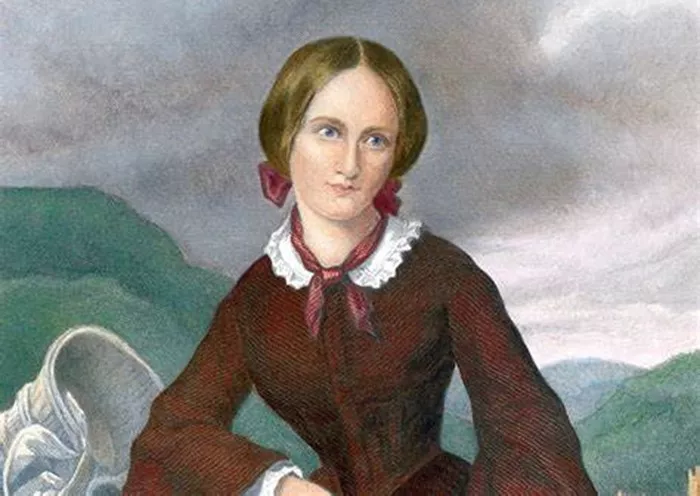On April 21, 1816, in the small village of Thornton, Yorkshire, Charlotte Brontë was born, a literary force whose work would revolutionize the portrayal of women in literature. Today, on what would have been her 209th birthday, we reflect not only on her iconic novel Jane Eyre but also on her groundbreaking role in shaping female characters who were bold, flawed, and fiercely independent. In an era that demanded women in fiction be passive or idealized, Brontë dared to make her heroines complicated and unapologetically human.
A Revolutionary Voice in Victorian Fiction
When Jane Eyre was published in 1847 under the pseudonym “Currer Bell,” it took Victorian society by surprise. The novel introduced readers to an unconventional heroine—plain, orphaned, and morally steadfast—who commanded respect without relying on beauty, wealth, or submission. Jane was no passive love interest; she was a woman who confronted desire, isolation, and the complexities of morality. Her defiance in rejecting Mr. Rochester’s offer to live with him as his mistress was a radical act of autonomy that challenged societal expectations of women.
Heroines Who Defied Convention
Brontë’s heroines were not paragons of virtue or stoic sufferers of fate. They were individuals who made mistakes, voiced their dissent, and rejected the roles society assigned to them. In Villette, Lucy Snowe’s emotional isolation and struggle with self-worth in a foreign land further exemplified Brontë’s commitment to writing multidimensional female characters. Whether confronting romantic rejection or social ostracism, these women asserted their independence and fought for their own identities, both in their actions and their minds.
At a time when Victorian women were expected to embody docility and devotion, Brontë’s characters defied these constraints with strength, intellectual rigor, and emotional depth. They were not just products of their circumstances but active participants in shaping their destinies.
The Brontë Sisters: Literary Giants in Their Own Right
Though Charlotte was not the only Brontë sister to make her mark on literature, her works stand out for their psychological insight, moral complexity, and emotional honesty. Her sisters Emily and Anne also contributed powerful, unconventional narratives—Wuthering Heights and The Tenant of Wildfell Hall, respectively—but Charlotte’s novels were particularly noted for the internal struggles of their protagonists, who wrestled with both external and internal conflicts.
The tragic deaths of Charlotte’s siblings, including Emily and Anne within a year of each other, marked a period of intense personal loss that deeply influenced her work. Her writing became both an escape and a form of defiance against the grief that threatened to overwhelm her. In a way, Brontë’s characters were reflections of her own resilience in the face of tragedy.
The Enduring Relevance of Jane Eyre‘s Legacy
What makes Jane Eyre resonate even today, nearly two centuries after its publication, is its profound humanity. It is not a fairytale, and its protagonist does not change her appearance or achieve a happy ending through external intervention. Rather, Jane Eyre’s journey is one of self-discovery, independence, and the courage to choose her own path—even when that choice brings pain or difficulty.
In many ways, Brontë’s depiction of a woman who challenges not only societal constraints but also her own emotions and beliefs, remains ahead of its time. Even in contemporary fiction, such complex portrayals of women—angry, intelligent, romantic, and rational—are still uncommon, making Jane Eyre a timeless study in self-empowerment.
A Literary Legacy That Continues to Inspire
Charlotte Brontë’s death at the young age of 38 did not diminish her literary influence. From Virginia Woolf to Chimamanda Ngozi Adichie, generations of writers have cited her as a critical influence. Her works continue to be reimagined, adapted, and celebrated, not only for their romance but for their exploration of self-worth, dignity, and autonomy. Brontë gave permission for women to question, to feel deeply, and to express themselves in ways that were revolutionary for her time.
Brontë’s Personal Reflections: A Woman Who Lived Her Beliefs
Though often introverted and reserved, Charlotte Brontë’s personal writings reveal a woman of great insight and strength. She once wrote, “I am no bird; and no net ensnares me: I am a free human being with an independent will.” This declaration of independence encapsulates the essence of her literary work—women who are not defined by external forces but who define themselves through their actions and choices.
As we celebrate Charlotte Brontë on her birthday, we are reminded that literature is richer when its female characters are complex, flawed, and free. Her heroines broke the mold, showing us that women in fiction could be more than mere ornaments or passive characters—they could be bold, human, and unforgettable.
Charlotte Brontë’s legacy endures not only in the pages of her books but in the lives of the many women who continue to find inspiration in her words. Her heroines may have lived in the 19th century, but their struggles and triumphs are universal, proving that the fight for independence and authenticity is timeless.

